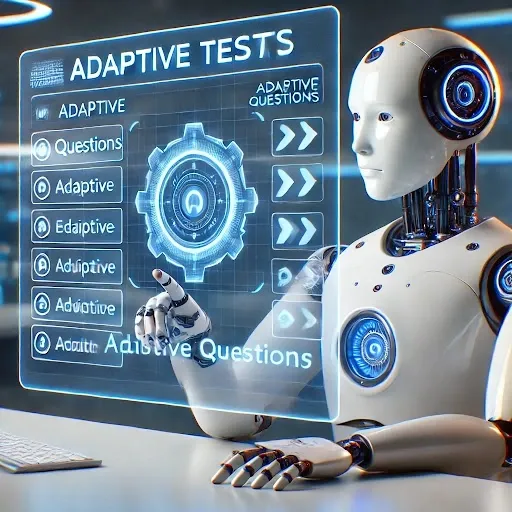
Think about this: If the GMAT were simply a collection of random questions, anyone with a decent memory and some free weekends could crack it. But that’s not the reality. The GMAT is more like a game of chess. Every move you make determines the difficulty of your next challenge. And just like a smart opponent, the test adapts.
This is why adaptive learning, embedded in every practice GMAT test, is no longer a bonus, and it’s the backbone of your prep strategy. Ignoring it is like training for a marathon on a treadmill and expecting to win a mountain trail race.
What Is Adaptive Learning and Why Should You Care?
Adaptive learning is the silent guide shaping your GMAT experience. Instead of serving all test-takers the same questions, the algorithm tailors the test in real time based on performance.
Here’s how it plays out:
- Get questions right early on? Expect a steeper difficulty curve.
- Struggle in the beginning? The test adjusts, and your scoring ceiling narrows.
- Recover later? The adaptive engine has already recalibrated your path.
This dynamic setup isn’t designed to confuse you; it’s designed to measure your true ability efficiently.
How the GMAT Algorithm Reacts
| Answer Pattern | Difficulty Trend | Score Potential |
| Early Correct Streak | Rapid increase | High ceiling |
| Inconsistent Accuracy | Difficulty fluctuates | Mid-range score |
| Strong Finish Only | Late boost, limited | Score capped early |
Practice GMAT Test vs Real GMAT: Same Algorithm, Different Stakes
One of the candidates’ biggest mistakes is treating practice GMAT tests like short, casual, and low-stress quizzes. In reality, these practice tests mirror the adaptive algorithm used in the actual exam.
Adaptive scoring in practice tests allows learners to:
- Understand how mistakes affect question difficulty
- Learn the importance of early momentum
- Track performance by question level, not just topic
More importantly, it uncovers hidden weaknesses that a static test could never reveal.
The Learning Benefits Hidden in Every Mistake
What separates average prep from advanced strategy is how mistakes are handled. A wrong answer in an adaptive system doesn’t just dock points, it alters the path of the exam.
Candidates who understand this dynamic start to:
- Review not only the question but the ripple effect it caused
- Reframe their focus from “just getting it right” to getting it right early
- Emphasise consistency over hero moments
In effect, every practice GMAT test becomes an experiment in pacing, strategy, and mental resilience, not just academic ability.
Adaptive Learning Builds Cognitive Endurance
Think of adaptive tests like a mental HIIT workout. As performance rises, the test responds with more challenging material. This keeps the brain in a constant state of alertness, unlike traditional tests that may drift into predictability.
How to Train for an Adaptive System?
Success in an adaptive test demands more than content review. It requires strategic test-taking behaviours. Smart candidates learn to:
- Avoid careless early mistakes: The first few questions influence the entire trajectory.
- Track difficulty trends: Know if the test is getting tougher and why.
- Keep calm under rising pressure: Avoid panic as the difficulty ramps up.
- Use analytics: Leverage review tools to spot when the adaptive curve turns downward.
This transformation only happens when learners see their practice GMAT test as a mirror of the real thing, not a warm-up lap.
Why Every Practice Test Should Be Adaptive?
Any prep resource that doesn’t use adaptive methodology is, quite frankly, outdated. Practising in a linear format might build familiarity, but it won’t simulate real conditions.
Candidates should ask themselves:
“Is this test preparing me for the GMAT, or just testing what I already know?”
Only adaptive practice reveals performance patterns that mimic test-day outcomes.
Adaptive Practice vs Linear Practice: Outcomes Comparison
| Metric | Adaptive Practice | Linear Practice |
| Accuracy Under Pressure | Improves | Static |
| Difficulty Awareness | High | Low |
| Test Readiness | Strong | Superficial |
Final Thought
The GMAT doesn’t care how well one studies; it cares how one performs under pressure. Every practice GMAT test with an adaptive engine becomes a rehearsal for this reality.
Adaptive learning doesn’t just test knowledge. It trains instincts. It refines timing. It shapes confidence.
Candidates who thrive train in the arena, not in isolation. The message for those preparing for the GMAT is simple: Practice adaptively or risk being blindsided when it counts most.






